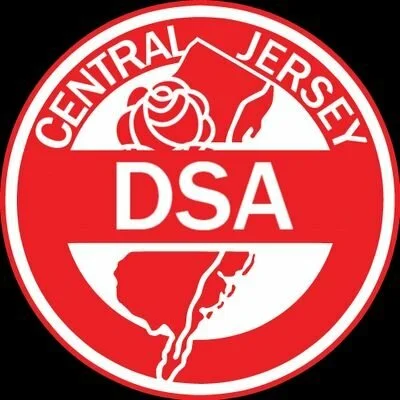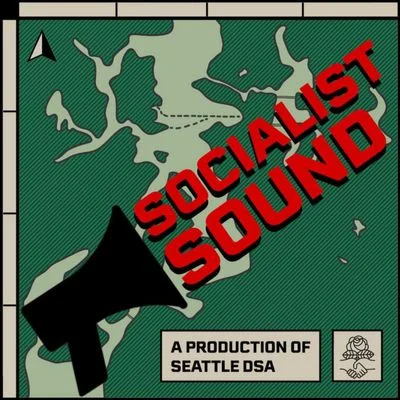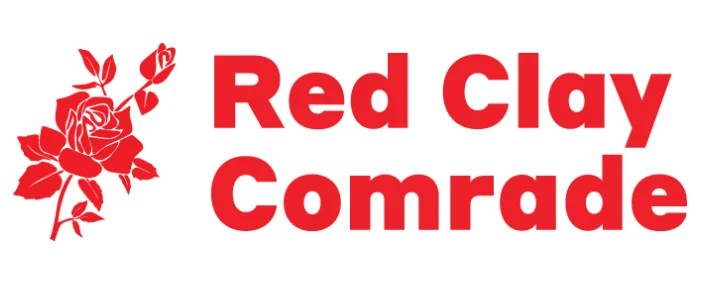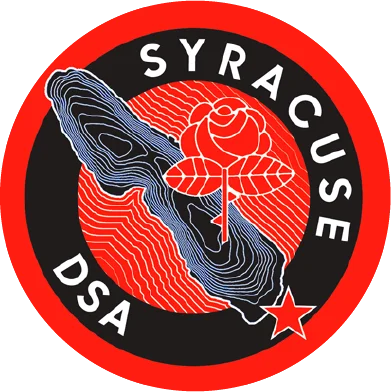

Hindu Nationalism & the U.S. Far Right


Let’s get Strike Ready!
What is happening?
UPS Teamsters are fighting for better pay, hours, and treatment on the job! If UPS doesn’t respond to workers’
demands before their contract expires on July 31st, UPS workers are prepared to launch the largest private-sector strike in decades. We should be there to support them in their struggle!
UPS made over $13 billion in profits last year. But they want their workers to settle for less. It’s unacceptable that UPS CEO Carol Tomé earns more in a day than the average UPS worker makes an entire year! UPS Teamsters are at the bargaining table to demand:
- End Part-Time Poverty: A majority of UPS workers are part-time employees making poverty wages. They want higher wages and more full-time jobs.
- Win Equal Pay for Equal Work: UPS wants to pay some drivers less to do the same job. Teamsters say no way.
- End Excessive Overtime: For many Teamsters, the rallying cry is “I don’t want to be a part-time parent.”
UPS Teamsters voted by 97% to strike if UPS doesn’t deliver a fair contract. And they’re not just fighting for themselves. UPS workers move 6% of the country’s GDP every year. What they win sets the standard for everyone else.
How do I get involved?
- Let our chapter leadership know you are committed to supporting the strike by signing the Strike Ready Pledge. This way we know how to contact members to get involved.
- Learn about the demands being made and how DSA can support.
- Show up to the picket!



NNJ, CNJ, and NYC-DSA Stand in Solidarity with Illegally Terminated Jollibee Workers
The North New Jersey, Central New Jersey, and New York City Chapters of the Democratic Socialists of America stand in solidarity with former Journal Square Jollibee workers who filed a formal complaint to the National Labor Relations Board (NLRB) after being illegally terminated earlier in 2023. We unequivocally support their demands for reinstatement, back pay, and an apology.
A group of nine workers at Jollibee, a popular Filipino fast food restaurant, were harassed, surveilled, and then terminated after management at the Journal Square store learned they were organizing for fairer working conditions. These workers had organized around a $3 wage increase, holiday pay, and improved working conditions, gaining the support and documented signatures of over 90% of the workers at their location in just a couple of weeks. After filing with the NLRB, the group launched the #Justice4JollibeeWorkersCampaign where they attempted to deliver their written demands to management on National Fried Chicken Day. This is one of the busiest and most demanding days of the year for fast food workers, who experience increasingly dangerous conditions and maltreatment from management during the rush.
As an internationally ubiquitous fast food chain set to open 500 stores in North America in the next five to seven years; Jollibee Food Corporation is valued at over $5B and made $3.2B worldwide in 2022. The workers who make this growth possible haven’t benefited from it. Management uses several tactics to keep their pockets lined, including wage theft, mistreatment, surveillance, chronic understaffing, and intentional misclassification and casualization of workers to deprive them of full-time benefits and pay. The #Justice4JollibeeWorkers campaign demands, at minimum, that Jollibee uphold its workers’ rights to organize at all stores, reinstate fired workers with back pay, and apologize publicly for their retaliation. They have received widespread community support from organized workers in New Jersey, including Pilipinos Organizing for Worker Empowerment and Rights (POWER).
As socialists, we believe that every worker has the right to organize, and that Jollibee’s behavior is unacceptable. We condemn the multinational company’s mistreatment and intimidation of their workforce, disproportionately made up of people of color and members of the Filipino labor diaspora. We applaud the former Journal Square workers for organizing to build power and have their voice heard on the job. The North and Central New Jersey as well as New York City DSA Chapters cover all NJ and NY Jollibee shops in our states’ most populated areas. We support the #Justice4JollibeeWorkers demands and will stand with Jollibee workers as they fight, and until they win.
Sign the #Justice4JollibeeWorkers petition against the Jollibee Foods Corporation here.
The post NNJ, CNJ, and NYC-DSA Stand in Solidarity with Illegally Terminated Jollibee Workers appeared first on Central NJ DSA.


Debating DSA's Electoral Strategy: NPC Candidates Weigh In
In this episode, we dig into the sharp debates and controversies surrounding DSA’s electoral work. My four guests are candidates for DSA's National Political Committee hoping to be among the 16 elected at the August National Convention of DSA in Chicago. Each represent a different DSA caucus.
There are 41 candidates for the National Political Committee, which is the highest elected body between DSA’s bi-annual National Conventions. The political make-up of the team elected to lead the largest socialist organization in the US is arguably the most important decision the Chicago Convention will take.
Yet even within DSA, too often we default to dominant norms of US political culture, reducing political debate to sound-bites and gotcha moments on social media. In the spirit of a more engaged democratic process, this extended episode features a far more in-depth discussion over how DSA can address one of our central challenges: building a powerful and yet accountable socialist electoral project.
My guests:
Amy Wilhelm is co-chair of Seattle DSA, and a trans Marxist born and raised in Seattle. Amy’s background is in tenant organizing, and they’re a member of the Marxist Unity Group, a DSA caucus.
Philip Locker is a long time socialist organizer and a member of the Seattle Education Association. He helped lead the fight to win the $15 minimum wage in Seattle, the first major city to do so. Philip recently completed a term as Co-chair of Seattle DSA and is a member of the Reform & Revolution caucus.
Alex Pellitteri is a Bread & Roses caucus candidate for NPC. He is from NYC-DSA where he has served as a campaign manager for a DSA-endorsed candidate; he served on the Socialists in Office Committee; and helped start a YDSA chapter.
Sam Heft-Luthy is a former co-chair of DSA San Francisco, the current Secretary of California DSA, and a member of the Red Star caucus. He served on DSA SF's electoral strategy commission in 2021 and was a staff organizer for the chapter's People First San Francisco ballot measure campaign. He grew up in the Capitol Hill neighborhood of Seattle.

Labor Militancy on the Rise: SAG-AFTRA Strikes!

Last Friday, July 14, the Screen Actors Guild – American Federation of Television and Radio Artists (SAG-AFTRA) launched a strike, representing over 150,000 workers. This is the first time that SAG-AFTRA and the Writers Guild of America (WGA) have been on strike at the same time since 1960. Both of these unions are up against the Alliance of Motion Picture and Television Producers (AMPTP).
The AMPTP is an alliance of major studio capitalists, including the “Big Five” – Walt Disney Studios, Warner Bros., Universal Pictures, Columbia Pictures (Sony), and Paramount Pictures – which currently dominate over 80% of the media market. The “Big Five” have a significant presence in Atlanta, a city that has seen its film industry rapidly grow into a multi-billion dollar sector in recent years, employing over ten thousand workers.
On Monday, SAG-AFTRA held a kickoff rally at the local IATSE 479 Hall in Atlanta to mark the launch of the nationwide strike. Hundreds of members and supporters gathered to hear from speakers regarding the upcoming fight and the unions’ demands, including increased pay, stable employment, and measures to address the increasing use of AI to replace human labor.
Just as with WGA, the era of streaming and inflation has caused a considerable financial hit for actors, and a significant decrease in compensation. Additionally, workers are asking for more reasonable timelines to avoid long periods of unemployment between filming. Media bosses benefit from keeping employees captive and precarious between shoots, as a way to protect their bottom line and maximizing profits.
Finally, as if in a dystopian science-fiction, some major companies are attempting to claim actors’ “likeness” as property for their own profit. Using advanced AI tools, producers can scan an actor’s image and incorporate it digitally into any media production. Studios can even edit actors’ dialogue or appearance in movies without the actor even showing up for production. SAG-AFTRA is pushing back on these developments, demanding protections for workers, informed consent, and more adequate compensation for the use of their likeness.
The wealthy investors that the AMPTP represents are a powerful force which shapes public opinion, and political and social movements through its control of media production. But with both WGA and SAG-AFTRA on strike, the absence of new media is bound to expose who’s actually doing the work to create the film and television content which makes these studios so profitable. The recently announced SAG-AFTRA strike not only coincides with the WGA contract fight, but also falls just two weeks before the UPS Teamsters plan to launch the largest private-sector strike the country has seen in decades. With worker militancy on the rise, it’s clear that workers from logistics to the film industry are growing increasingly conscious of their position in society and ability to win transformative change through collective action.
This historic moment demands not only cross-union solidarity, but backing from the entire working class, and DSA is ready to support workers every step of the way! While most SAG-AFTRA pickets are currently concentrated in LA and New York, keep your eyes peeled for updates on Metro-Atlanta pickets and actions at https://www.sagaftrastrike.org/ and get involved in DSA to join our labor solidarity work.
Photos by Brandon Mishawn
The post Labor Militancy on the Rise: SAG-AFTRA Strikes! appeared first on Red Clay Comrade.


Show your support for UPS workers
UPS Teamsters are fighting for better pay, hours, and treatment on the job! If UPS doesn’t respond to workers’ demands before their contract expires on July 31, over 340,000 UPS workers are prepared to launch the largest strike in decades.
Show your support for UPS workers!
- Do you know your UPS worker that brings packages to your work or to your home? Display this beautiful poster in your window to show your UPS worker and the community that you support their fight for a fair contract.

2. Join us next Friday, July 28 for our Strike Ready Fundraiser at the Gallatin Labor Temple! It will be an exciting night of live music to raise money for local UPS workers.
Featuring performances by:
STiLGONE
ART & FUNK COLLECTIVE
THREE PENNY RIOT
Suggested Donation $10
Donations will go to the DSA Labor Solidarity Fund, which is a national fund that supports local labor activity. Donations will support striking workers in Bozeman on this or future picket lines.



The Fight to Reform UFCW with Essential Workers for Democracy
Representing around 1.1 million workers in the US and Canada in the fields of retail, grocery, healthcare, cannabis, and more, United Food and Commercial Workers (UFCW) is a major union with the potential to win big gains for workers. But some of its own members say the union is too top-down, lacks worker engagement and democracy, and isn't investing enough in organizing new workers in a time of increasing economic inequality and pressure on the working class. Tonight we're joined live by Enrique and Iris, two grocery worker-organizers and members of Essential Workers for Democracy, to discuss their efforts to reform their international union and "raise the floor" for workers everywhere.
Learn more about EW4D and get involved here: https://ew4d.org/


Solidarity Delivers the Goods!
Happy red hot summer!
UPS Teamsters have voted to go on strike August 1 if the bosses do not agree to a fair contract. Join us Sunday, July 9, 2:00-3:30 PM at the Gallatin Labor Temple (422 E Mendenhall) for a discussion about why workers go on strike and how to support UPS workers.
Suggested materials to review:
- The Chicago Teachers Strike Is a Fight for the Common Good (Article)
- Create Havoc Around our System (CHAOS) method (Video)
- Teamsters Deliver The Goods 2 (Podcast)
Other upcoming dates:
- Thursday July 13, 6:30 PM, Housing Working Group (1820 W Lincoln)
- Sunday July 16, 2:00 PM, Labor Working Group (422 E Mendenhall)
- Thursday July 20, 6:30 PM, Housing Working Group (1820 W Lincoln)
- Sunday July 23, 2:00 PM, Labor Working Group (422 E Mendenhall)
- Friday, July 28, Strike Ready Fundraiser at the Gallatin Labor Temple to raise money for a strike fund to support UPS workers if they need to strike
- Sunday, August 13, 2:00 PM, New DSA Member Orientation
Solidarity Forever


On the Supreme Court, July 2023


Syracuse DSA condemns the recent Supreme Court ruling that threatens protection of marginalized and colonized communities in America and dramatically limits access to the current education system. Already coming off one year since the overturning of Roe v. Wade and the curtailing of EPA powers to regulate air quality and carbon emissions, we already see the results of allowing hard won civil rights to remain issues of litigation as opposed to legislation.
As socialists, we cannot sit idly by as an unelected, reactionary judicial body influenced by right-wing billionaires slowly strips the rights away from working-class people. It is up to us to organize a movement that can build the kind of world we need. A world that can meaningfully address the systemic racism woven within its structure. A world where free, high-quality education is accessible from cradle to grave.
The Supreme Court rulings show us that the ruling-class will always oppose even the most basic interests of oppressed and working-class people. Dozens of cases, ranging from Dred Scott v. Sanford, Korematsu v. United States, to Plessy v. Ferguson have upheld the right to discriminate based on race, ethnicity, gender expression and sexual orientation. The most recent decisions should not be viewed as an extremist anomaly, but as a continuation of a trend—one that abets capitalist hegemony and white supremacy.
The Supreme Court, unlike every other court in the United States, has failed to adopt an ethics code that compels justices to recuse themselves from cases where there are clear conflicts of interests. Clarence Thomas and Samuel Alito, in particular, have accepted lavish trips and gifts from right-wing billionaires with business before the court.
This makes a mockery out of a major branch of American government, instead turning it into a transparent example of the two-tiered system conservative justices might deny exists—one designed for the wealthy, and one for everyone else.
We must not let empty promises by centrist Democrats derail and thwart demands for accountability that arise organically, products of the increasingly apparent contradictions of the capitalist system. Those demands for accountability and a truly just world cannot be paralyzed by election promises, freedoms to perhaps be realized in future election cycles. People are tired of their rights being used for fundraising pitches with no intention to actualize or advocate for them—they want a society that provides for their needs and defends their humanity in the here and now.
It is up to us to wield our collective power and make a better world, one built from the ashes of the old, and inspire our neighbors and comrades to make it with us.
July 3rd, 2023










